|
While self-esteem is an indication of how you see your value and worth, it can affect relationships, career, motivation, behaviour, and wellbeing. In short, self-esteem can significantly increase or decrease the overall quality of your life.
A healthy self-esteem allows you to acknowledge your potential, set healthy boundaries, have a clear understanding of your needs and strengths, feel a sense of belonging, as well as feel courageous enough to grow, take risks and seize opportunities. Remaining in a healthy state, similar to physical exercise, requires regular efforts and attention. It may be hard, but it will prove to be worth the effort and time investment. In order to cultivate a healthy self-esteem, here are five suggested exercises that you could implement in your day-to-day life.
0 Comments
Which of us doesn’t want to have a good life? Who doesn’t want to be enough? With a lovely house and garden, sweet children, a loving spouse, who come together for breakfast, lunch, and dinner. A life filled with good friends who celebrate over an elaborate meal and extended family that come together often with smiles and hugs. A life with a rewarding job that appreciates your work and brings out your best. While these scenarios might be things that people dream about, they are scenes from stock photos, advertising campaigns, lifestyle shows, and social media influencers. Yet they inspire us to want to be perfect, to have perfect lives. They prey on our feelings that we are not enough. Then, for many of us, the drive to have a perfect life overwhelms. In her book, End the Struggle and Dance With Life, Susan called the drive to always be perfect an addiction. Always having to be the best, always going above and beyond, always having to prove yourself are just ways of trying to show the world, and yourself, that you are good enough. Being a perfectionist, while it might look as if everything is fantastic, takes its toll on our health and our relationships. It can also hold us back from new opportunities. All those images and videos we see of perfect-looking people living perfect lives only has the echo of truth in them. What we never see in those images is the mess behind the camera. The other people working behind those scenes to make the illusion seem real. So while those images make us feel as if we are less than perfect, they only represent something superficially “perfect.” The reason our addiction to perfection can be so devastating is that we believe our self-worth is measured by our performance. But since no one is perfect, it is impossible to attain self-worth through perfection. Trying to be perfect in everything we do is only a means to feel as if we are good enough. Have you set unattainable, high standards for yourself? Do you become self-critical when you do not achieve said high standards? Have you become critical of others for not meeting the standards which you have set? Does your fear of failure lead you to procrastination or hinder you from following your dreams? If you have answered yes to any of the above, you may have perfectionistic tendencies.
While continuously striving to be the best version of yourself and having attention to detail can be a great driving force, perfectionism often becomes a roadblock. How do you know if perfectionism is blocking your path to self-actualization? Constant Interruptions, Disturbances, Noise - How They Can Rob You of Your Focus (and Motivation)21/9/2023 They are building all around me this week – even with a jackhammer just below me. It is unbearably noisy. This noise is robbing me of my focus and, consequently, my motivation.
Currently, I am writing this while sitting in a quiet restaurant near my apartment and right by the lake . Hotel lobbies seem to stimulate creative thoughts. Nothing against the builders or the need to repair / renovate something in the building. That is life. We need to do maintenance on buildings just as we need constant maintenance in the form of self-care. But the level of disruption has made me appreciate how much noise makes it difficult for me to focus and concentrate. I had intended to do my morning brain training before I started work today but found that the drills and the jackhammer were too disrupting. So disrupting, in fact, that I left the house and retreated to this lakeside location. No matter how much I encouraged myself to, I just could not handle it. In the Oxford Dictionary, the definition of a “control freak” is “a person who feels an obsessive need to exercise control over themselves and others and to take command of any situation.” The Merriam Webster dictionary says that a control freak is “a person whose behaviour indicates a powerful need to control people or circumstances in everyday matters.”
This personality trait could stem from a chaotic childhood, alcoholic parents, abusive behaviour, or early abandonment. Such experiences can make it hard for people to trust or relinquish control to others. The fear of falling apart pushes them to control what they can. As their emotions are all over the place, they feel loss of control. For this reason control freaks will micromanage whatever they can with the belief that this makes them strong. People who feel out of control tend to become controllers. I imagine each and every one of us is a control freak, or takes on the behaviour of such, at some point or another. The fear of failure is what makes it so important to control everything when you do not trust anybody else to do a good job. One difficult aspect of being around a control freak is accepting that they do not understand how their behaviour and choice of words affect the people around them. Another difficult aspect is not to take it personally. This behaviour comes from deep inside and the person is actually quite unaware of being a control freak. Even the most enlightened of us can’t always stop ourselves from worrying about the future and asking ourselves “what if?” Underneath our connection to our Higher Self that we work so hard for, lurks the fear of future problems just waiting for an opening to ask us “what if?”
You know how it is…trouble is brewing at your job, layoffs could be coming. What if you lost your job? There have been a rash of pedestrian traffic accidents lately. What if your child is hit by a car? Your mother’s routine check-up turns into several follow-up appointments. What if she is sick? And on and on. Before we know it, our Chatterboxes have taken over. We are filled with fears about the future and the “what if” questions drag us down to our Lower Self. Many of us “what if” ourselves into a perpetual state of worry. “What if” questions come from our Lower Self, our inner chatterbox that wants us to live in perpetual fear. Susan wrote in Feel the Fear and Do It Anyway, “When the ‘what ifs’ are out in full force, the internal Chatterbox is at it again. You look at the unknown and try to predict the future; you try to take control of outside forces. Both are impossible. At this point you might notice you are driving yourself crazy.” There is nothing like being comfy and cozy in our comfort zones. Right? The problem with that is, of course, that we can’t change or grow if we hold on to our comfort zones. As Susan wrote in Feel the Fear and Do It Anyway, “Most of us operate within a zone that feels right, and outside of it we are uncomfortable. For each one of us that zone of comfort is different, but whether we are aware of it or not, all of us—rich or poor, famous or unknown, gay or straight, male or female or whatever our gender identity— make decisions based on the confines of that comfortable space.”
While we may feel secure in our comfort zone, we likely are living with the pain of neediness and the fear of change. While comfort zones can make us feel secure, they also keep us from feeling powerful. If we want to grow, to experience, to learn, we have to start moving out of complacency in that comfortable space. We have to start expanding our boundaries. To do so, we have to take action, we have to put in the work—even if it means being uncomfortable. That is the only way we can know our own power. The first and most important step is to realize and truly acknowledge that unless you take care of yourself nobody else can or will. When I say, “truly acknowledge”, I mean that you have accepted the following:
These are a few examples, expressed in simple terms: You have taken charge of your life, know your Values and maintain your Personal Power. You can live your life … it does not have to be living you! To reach your potential as well as feel content in the course of your life, having Life Skills is essential. They are the “software” you have the option to acquire along the way. You are born with the “hardware”: your body. Your behaviour comes under the heading “software” because this can be changed, improved, modified, extended or even deleted if necessary. Many of these Life Skills are received in the home and at school while growing up, others you learn later in your development, taught by “the school of life”, friends, colleagues, courses, books, teachers, trainers, and coaches. You can also teach yourself with patience and practice based on all of the above, plus past experiences, both positive and negative ones. What makes one person successful while others keep struggling? Everybody goes through difficult phases, has obstacles to overcome and disappointments to heal. This cannot be avoided. How you cope with all of these is the key to making your life a success. Life Skills offer support with how you handle your life. They can be defined as a group of cognitive and personal abilities that enhance your capability to lead a life in which you reach your potential. Every person has strengths and weaknesses; getting to know them is important in the process of finding out “who” you are and therefore “what” you want. Not everybody has the same dream. You should not judge others but find your way forward based on your own values. The success of some people is not a matter of luck; they will have learned how to manage their life, and they will have acquired the life skills - the “software”. Understanding that life is about change, which is inevitable, is one of the first steps on this ladder to the top! Your personal worth will benefit knowing you have the necessary skills in life to face everything that comes your way with confidence. by Suzie Doscher, Executive Coach focusing on Self-Development, Self-help Author since 2014. Photocredit: Cottonbro / Pexels Excerpt from the 1st Edition of BALANCE - a Practical Handbook for Life's Difficult Moments. Contact one of our coaches for a free introductory session.Feeling Overwhelmed? Here's the Counterintuitive Cure, According to a Time Management Expert19/5/2022 It might feel like you have too much to do. Context switching could be the real culprit. Do you often feel overwhelmed, that you have too much for you to do and you can't get to it all? That's a very common feeling, says Anna Dearmon Kornick, certified time management coach and head of community at Clockwise, which makes time management software for teams. But the reason for that feeling may not be what you think it is, she says.
It may not be because you have too much work to do. It could be that you have too many different important matters to focus on at once. "All of that context switching leads to ovewhelm," she says in an interview with Inc.com. Worse, it can create the illusion that you aren't getting anything done. "We're basically making an inch of progress on all our projects, instead of making a lot of progress in one area," she says. "It's so small that you get frustrated by the fact that you're not seeing major progress, which gives you negative feelings about the projects, which causes you to feel bad about yourself or think you're not good enough." A daily practice to realize the counterintuitive truth that when you slow down, you have more time. Most people, most of the time, move more quickly than they need to. I’m not talking about running for the bus—I mean operating with an internal imperative, an over-revved engine, an agitated nervous system and an overactive mind that makes you drum your fingers while you wait for your coffee order, fidget with your phone when there is nothing you need from it, walk as if rushing because, well, just because it’s your habit. Moving quickly, while stressful, gives us a sense of purpose, as if pace and posture are saying: “Look how busy and important I am; I have no time to hang around.” “I have so much going on,” we boast to each other, as if we would prefer it to be otherwise. We tell each other: “I really need some space,” but as soon as you have some free time, do you just sit there, surrendering to the void? No, you fill it up with doing something!
Remember that life is complicated and can be more difficult at times. Sometimes it feels like a rollercoaster ride! Cleaning your life up, getting rid of the deadwood, and finding your place of balance forms a wonderful grounding foundation to build on. Feeling you are in balance is the best, most powerful place to work from and a place to come back to when things are difficult. Being familiar with the feeling of being in balance allows you to know exactly what you want to get back to. This also offers you the goal to strive for. Life will always contain difficult times. Trusting yourself to handle these difficult times gives you the confidence to deal with them.
If your life feels like it is a mess and you are ready to take some action, there are many different approaches to consider. Support from a professional or wise friend, meditation, spiritual beliefs, sometimes even just taking a “time out” holiday is incredibly beneficial. Find the option that suits your personality and lifestyle best. You are looking to be more grounded in the present, calmer, which will offer more clarity. You are more likely to stay on track with making the necessary changes with a realistic clear mind. To get yourself on track to feeling better and living the kind of life you wish for, ask yourself: You have the power to unlock new levels of creativity you couldn’t even fathom before. Statistics show that over 20 percent of newly established businesses in the U.S. close within the first two years. That equates to around 155,000 companies, which is quite an astounding number. If you do not want your startup to be a part of these statistics, it may be time to start thinking outside the box.
One way to ignite the creative spark within you is to create mind maps. Online mind mapping is a tool that is readily available and can increase innovation. Entrepreneurial creativity is now a necessity in this changing business landscape. To survive, business people need to be adaptable and innovative. Let’s examine how mind maps can act as the key to unlocking an entrepreneur’s creative side. Develop Creative Habits People think creativity is something you are born with. However, that is not always true. An assumption is a thought or conclusion drawn when someone says or does something. It is a reaction. You do not have the full picture or asked any questions yet to be able to make an informed decision. Conclusions are often based on assumptions which could be incorrect. They are not backed up by fact yet treated as the truth.
Assumptions have the potential to confuse a situation, and everyone involved. For example, silence or nodding does not always mean the person agrees. They could be simply acknowledging they heard you. They might not agree yet in that moment are not ready to comment. You cannot know if what you are assuming is the truth unless you ask questions to get more information and clarification. Listen carefully and ask questions if you are not sure or need further information to form an opinion. Core values are personal to each individual. They can be described as your code of ethics, your fundamental principles, your standards, or personal rules. I like to refer to them as the bricks you build your foundation on. Knowing what you truly value in life, what makes you feel fulfilled and gives you a sense of meaning, connects you to your true self and is an important part of your personal development. Core values are about YOU – not what society, the media, your education, your colleagues and friends or family deem as important, or of value, but what is important to you, what you value. Stress tends to set in when you are not treating these values with the respect they deserve. Not respecting your core values means you are not respecting your true self. In turn your self-esteem could suffer, which of course in turn decreases the quality of your day-to-day life. When the feeling of being calm and peaceful is present, and the quality of day-to-day life is high, you feel good about yourself and who you are. Your self-esteem and self-worth benefit from this. Caroline Myss, a five-time New York Times bestselling author and internationally renowned speaker in the fields of human consciousness and mysticism, says, “Being able to speak and live with the truth, your truth, means you have to become comfortable with having your power, be comfortable with all that is true about you, all that is beautiful about yourself, this is being okay with yourself.” Consider the Core Values Process I offer as a gift to yourself. The focus can be on your life, your overall life which would include your career, your career alone or your leadership values (this is a great exercise to do as a new leader or to update your existing leadership skills aligning them with your personality). by Suzie Doscher, Executive Coach, Life Coaching - Focusing on Personal Development, Self-help Author: Balance - a Practical Handbook for Life's Difficult Moments Photo credit: Shutterstock Set up a Core Values Process with Suzie Doscher or contact any of our coaches for a free introductory session.You did it. You made it out — hopefully with some shred of sanity and sense of personal self-worth. But even if those things feel unrecoverable, they aren’t. You can get them back.
Maybe you’ve moved on to greener pastures. If that’s the case, well done. You’ve taken an important step towards preserving (or gaining back) your emotional and physical health. Maybe, although less likely, your boss either moved on or was fired. Most of the time, these situations don’t fix themselves, as for some reason senior leadership would rather keep a single toxic boss employed than the multiple high-quality employees who leave because of them. In either case, there’s a residual emotional and physical toll that lasts well beyond the end of the boss-employee relationship. I know; I’ve been there. In the span of just two years of reporting to a toxic boss, I went from being a high-performing, high-potential engineering leader to nearly leaving the company I’d spent 15 years at because of one single person. My boss. That’s how badly I needed to get away from her. An assumption is a thought or conclusion drawn when someone says or does something. It is a reaction. You do not have the full picture or asked any questions yet to be able to make an informed decision. Conclusions are often based on assumptions which could be incorrect and not backed up by fact yet treated as the truth.
Assumptions have the potential to confuse a situation, and everyone involved. For example, silence or nodding does not always mean the person agrees. They could be acknowledging they heard you but do not agree yet in that moment are not ready to comment. You cannot know if what you are assuming is the truth unless you ask questions to get more information and clarification. Listen carefully and ask questions if you are not sure or need further information to form an opinion. The brain is wired to keep you safe and fulfill your core needs such as nutrition, shelter, community, pleasure, reproduction, and emotional expression. This establishes an idea of where you are, who and In my own life one of the important realizations was that balance is possible and it was mine if I wanted it. What followed was a fair amount of self-reflection, openness, and honesty with myself. Setting aside time to explore my definition of balance, by questioning what was missing and what I was already doing successfully, was time well spent. Since then, I have a good grasp on the various elements of day-to-day life. For me personally knowing my heart and mind are working together is what keeps me balanced. The sense of calm, of being grounded and clearheaded, motivates me to keep my life in balance.
Choosing to create balance will reflect in these six areas of your life:
Worried About Achieving Your Goals? Take Charge of the Stress in the Moment to Stay on Track29/7/2021 You have a goal, but are worried you will not achieve it. So many issues are popping up that need dealing with, obstacles and other unexpected ‘stuff’ keeps interfering with your daily plan and / or overall daily structure. Stress kicks in, which means focusing is harder and so less is achieved … sound familiar?
All of these thoughts and mind chatter do not have to result in your getting off track or losing sight of your goal. The trick is to take charge of your thinking and push the ‘reset’ button. By this I mean, ‘reset’ the moment, not the direction you are heading or the goal you intend to achieve. Resetting the moment means handling whatever is causing you stress. Stress is an emotional issue and will not vanish with the flick of a switch in your brain. Unless, of course, you already.... Change is not easy, nor simple. If you have been told you should change, but are not really convinced that this is true, you are more likely to fail at completing the process. Personally, I recognize the process to be complete when I no longer remember ‘what I was like before.’ Someone still in denial about the need to change will not get very far.
Chances are there will always be excuses in the form of: I do not have the time for this right now, I am busy, I already know how to…, it is not my fault, you do not understand, ‘a leopard cannot change its spots,’ I am too old, etc. Change can only really happen if you are ready to take action. Research shows that 90% of the strategies designed for change assume people are ready to take action. In reality, only 20% of the people already involved in some process of change are actually ready to take action. This helps explain why so many attempts to keep New Year's resolutions, lose weight, change behaviours, etc, are doomed to failure. It is most helpful and supportive and will increase your chances of successfully completing a Some considerations about your remote working environment by Paolo Cuomo.
Just over 9,000 days ago I entered 37 Fitzroy Square, London and sat at an office desk for the first time. 380 days ago I entered the iconic Cheesegrater building and sat at an office desk for the last time. I hope it won’t be the very last, but it’s clear I won’t be back until mid-2021 at the soonest. Ignoring a project I did many years ago with night-shift supermarket workers, this is the longest by far I’ve not worked in an office. When the UK and much of the rest of the world went into “lockdown” back in March/April 2020, it all seemed rather temporary. Of the many millions conducting our work interactions via email and Zoom, most took a short-term approach to our workspace — sometimes through limited choice, sometimes through natural inertia. Sure, a new mouse or a monitor, but still just stuck in the same corner or on the dining room table. As the work from home extended, we entered the summer months with the siren song of working outside or, as in my case, spending large parts of the day on calls while walking. Thus no real reason to adjust. Now here we are a year later. I was standing by the lake one windy morning watching the waves crash up against some rocks and the ripple effect that followed. The wave hit one area and cascaded long the others closer to where I was standing. It was beautiful, full of energy and at the same time made me realize that this can be translated into how one negative thought tends to release a series of more negative ones. This seems to happen to ‘feed’ or confirm the first one. I have found that negative thoughts hate being alone ... they look for company. In my own personal experience as well working professionally in the arena of personal growth and development, I all too often witness how this unfolds. I am not a therapist or neuroscientist so cannot speak scientifically. Having said that I have enough evidence after 16 years of working in this area to be able to say the patterns are there. It strikes me that our minds do not like to give up the negative thoughts. Our brain looks for further thoughts to confirm this 'truth'. The thought might be far from true now in our actual present-day reality, yet we treat it as absolute truth in our thinking. From what I witness, these beliefs come from emotions, more often than not emotions from the past, even the recent past (the last job, last relationship). Our behaviour follows our thinking, so our behaviour will act upon what we think and therefore believe. Limiting Beliefs For example, if you believe you are not very good at something, chances are you will act this way. Instead of taking the approach to learn how to or improve, you simply shy away from it. Of course, the very first step must be being aware of this thought pattern and the resulting behaviour. To make any changes it is vital to be aware of a pattern. If it turns out to be limiting belief that is holding you back, this belief is best challenged and reframed. If it is due to lack of clarity ... you go get more clarity. Feeling grounded Saying calm and grounded require certain behaviours that feed the calm. Each person will have their own requirements. What you as an individual need to feel calm will most likely differ from someone else’s needs. Each person has their own interpretation of success as well as what feeling calm and grounded means. Based on my own personal experience, this also changes depending on age. When I was 30, my focus was very different to when I was 40. At 30, I was focused on creating my family and being a wife and mother. At 50, I noticed that feeling fulfilled was my new goal and turning 60 was fabulous as I had completely grown into my skin by then and was more than happy to focus on my core values and needs. My goal of 'older age' is answering the question ‘how do I want this chapter of my life to look and feel?’ For me, this one is still work in progress, so watch this space. Tips for what comes next If you find yourself lost in a negative thinking pattern regarding an issue, observe any common denominators that kick the first thought off. What sets those wheels in motion? What happens next? Observe yourself, raise your awareness to your patterns. Is it a recurring situation, a recurring interaction, an issue left unresolved, a lack of clarity? ...It could be a number of things. Get to know yourself to find out what exactly it is. Then observe what comes next. Which thoughts follow, how do you act, react, behave, or deal with it? Always remember to be patient and kind with yourself during any process of growth or change. by Suzie Doscher Coaching for Personal Growth and Development: Life Coaching and Executive Coach, Self-Help Author Photo credit: Pexels and Shutterstock Contact us to schedule a free introductory session with one of our coaches in SwitzerlandI remember doing a Self-Esteem exercise while I was studying to become a coach. What I loved about the Noble Manhattan Coaching training was that we had to do all work on ourselves. Talk about furthering your own personal growth and development. I loved the changes that I was making to my own behaviour patterns as I was learning how to apply them professionally.
15 years later I still believe it to be the best coach training even if I had not become a professional coach. The benefits from doing the work for myself improved the quality of my personal and professional life no end and still does. The Zurich International School Guide to Building Mental Resilience at Home, Work and School22/4/2021 Mental resilience is the cornerstone of a successful life - but can you build it in yourself, your family and your team?
Crying every morning may sound like a terrible way to start the day, but for life coach Suzie Doscher, Class of 1974 (1970-74), tears are a vital safety valve – and a healthy response to a global pandemic. “When a friend asked me how I was coping with lockdown, I told her I regularly had a good cry,” she says. “I sometimes started the day feeling uneasy or unsure, but I know it’s important to deal with my emotions so I release them by having a cry. That is how I got myself to a place where both my feet were firmly on the ground, and then I knew that I could handle whatever came my way.” Now, more than ever, our mental health matters. We live, work and study at breakneck speed, bombarded by choice. And with technology – and the recent lockdowns – creating an ‘always on’ environment, boundaries between life and work are increasingly blurred. Clearly, the ability to build our own mental resilience, in mentally healthy work and living spaces, is crucial. None of this is news to Brigitte Eigenmann, Head of Human Resources at ZIS. “Our mental and physical health are connected,” she says. “That’s why we need to take mental health seriously.” Just as life is constantly changing, the brain is constantly changing. It is through repetition that thinking patterns and consequently behaviour patterns, can be shifted, tweaked, changed or completely replaced with more positive empowering ones. Through repetition the brain rewires itself.
Science has proven the brain can rewire itself. This is fantastic news especially for anybody wishing to improve the quality of their life and engaging the support of a coach for this 'change' process. Making, and more importantly sustaining, any changes in thinking or in behaviour patterns, would be very difficult, if not impossible, without this scientific truth. Knowing this offers coaching clients not only motivation but also confidence to continue on the path to 'change', which sometimes can be a difficult one. |
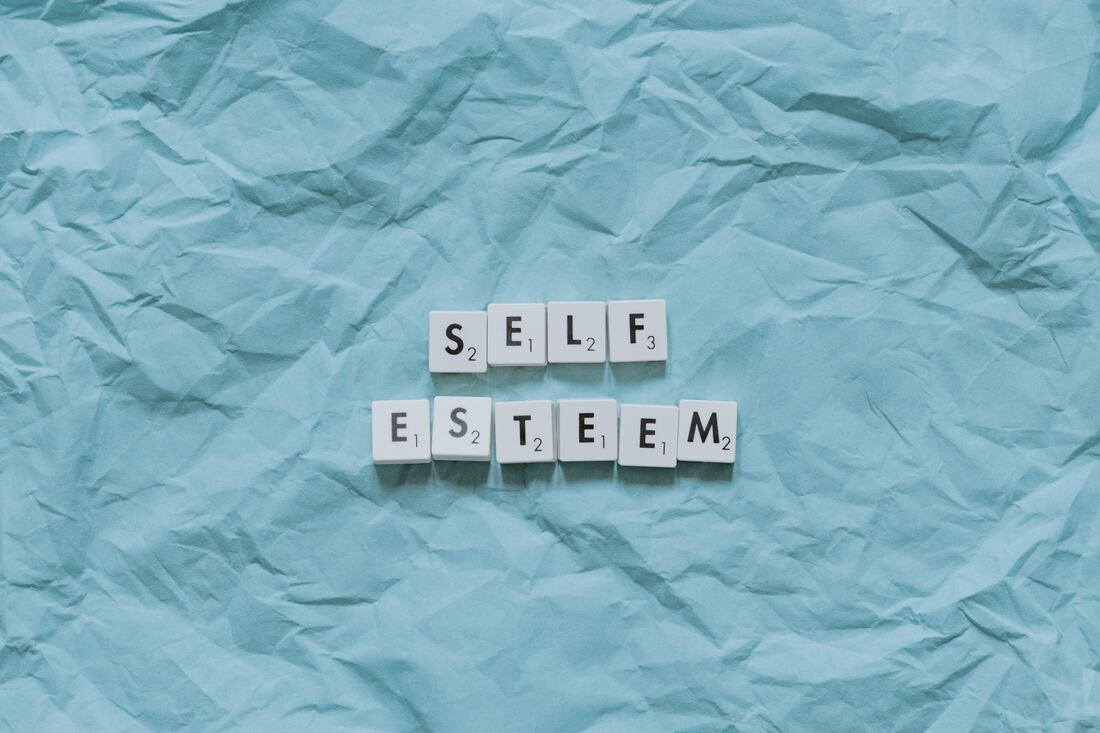
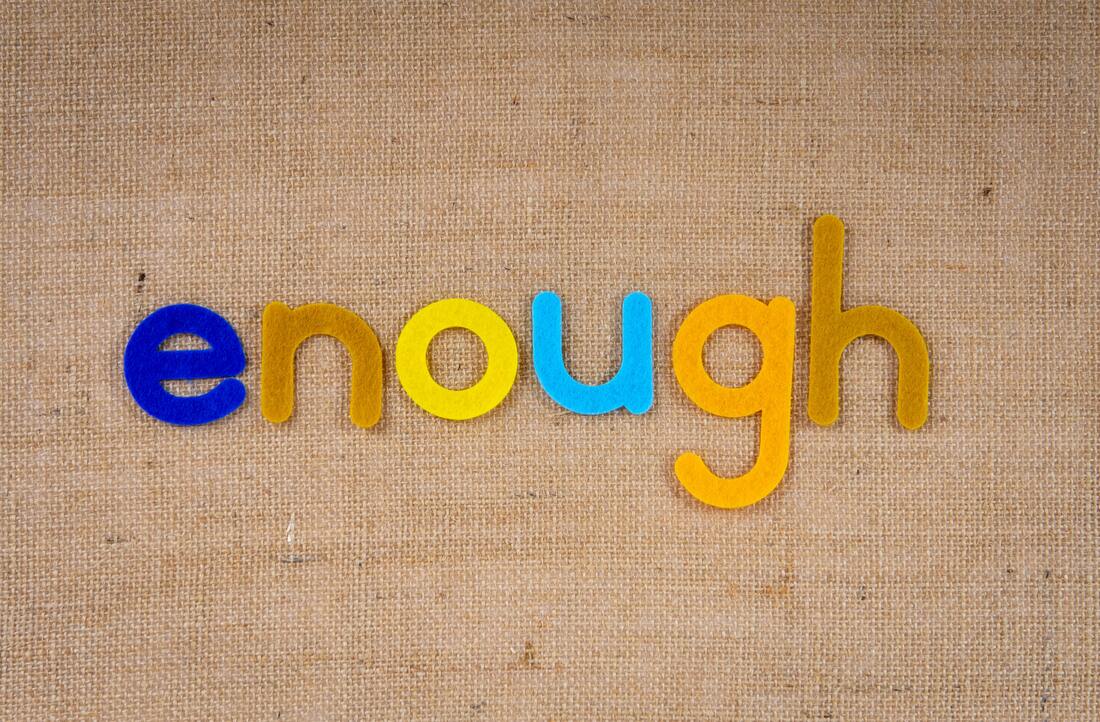



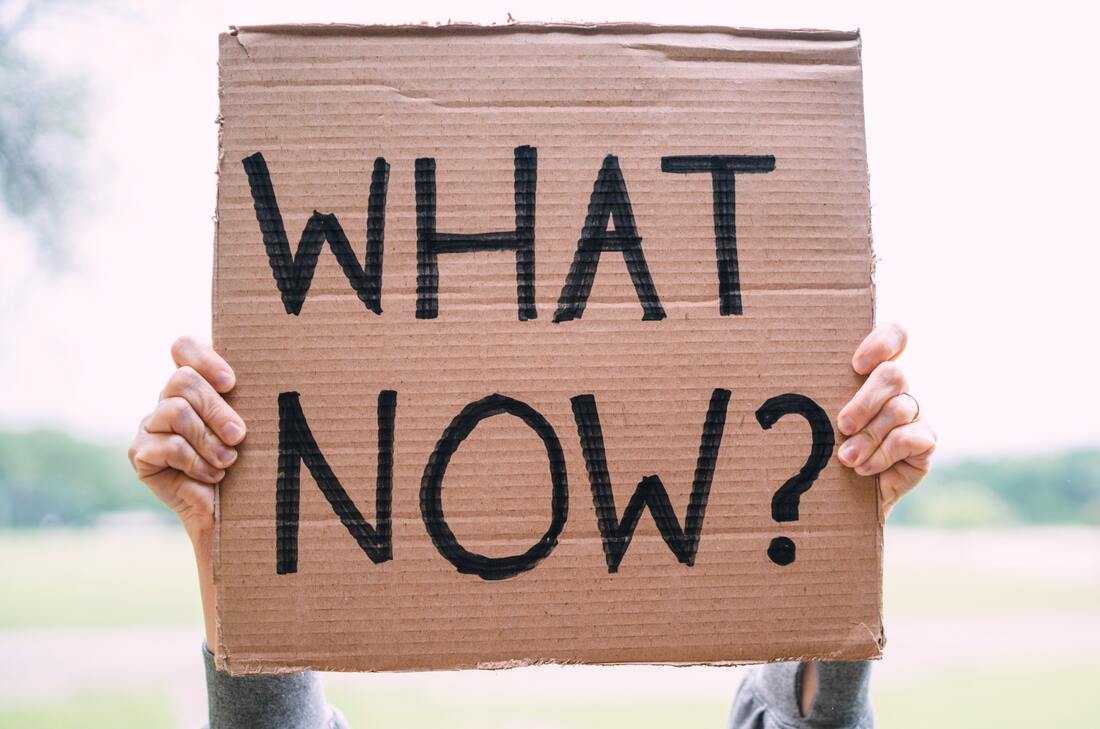

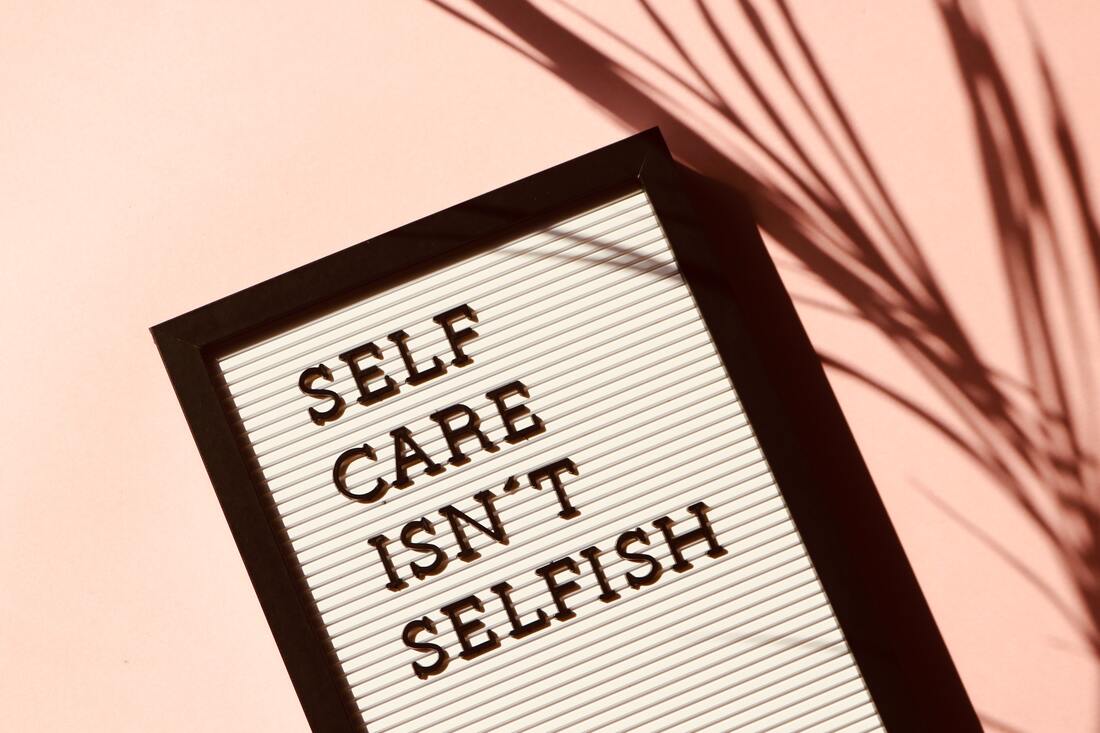




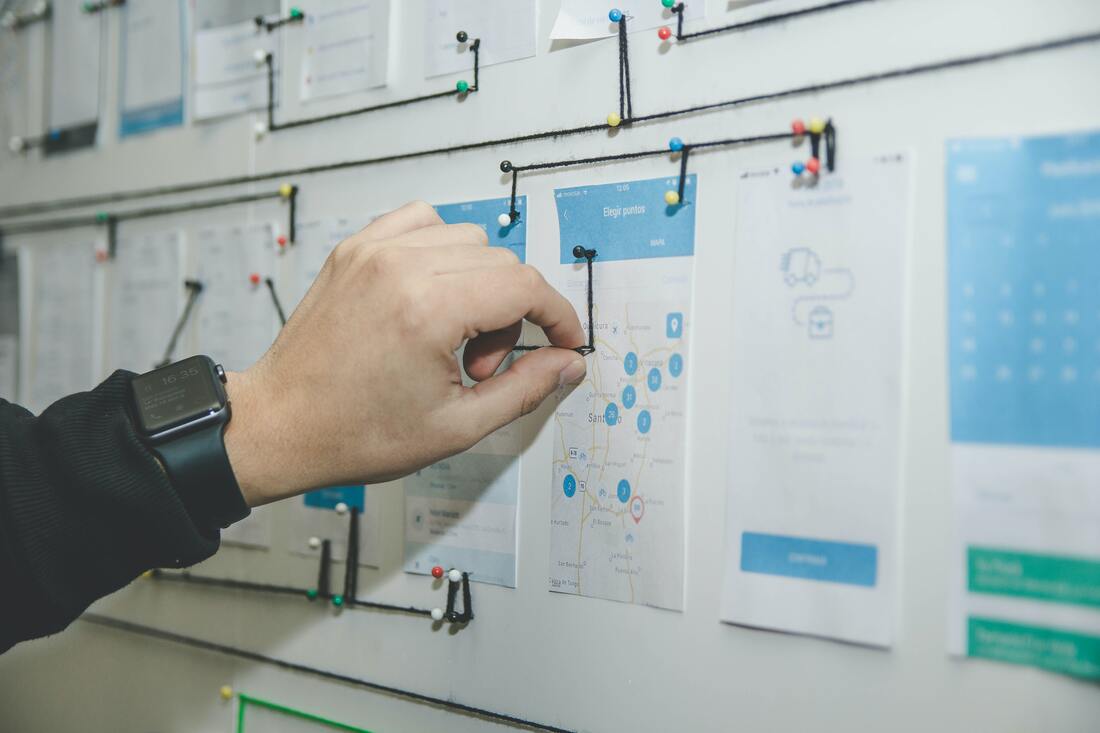

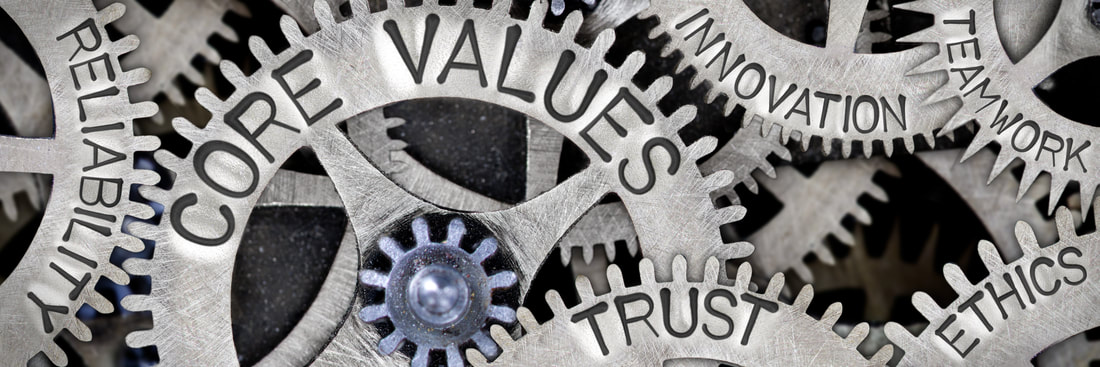
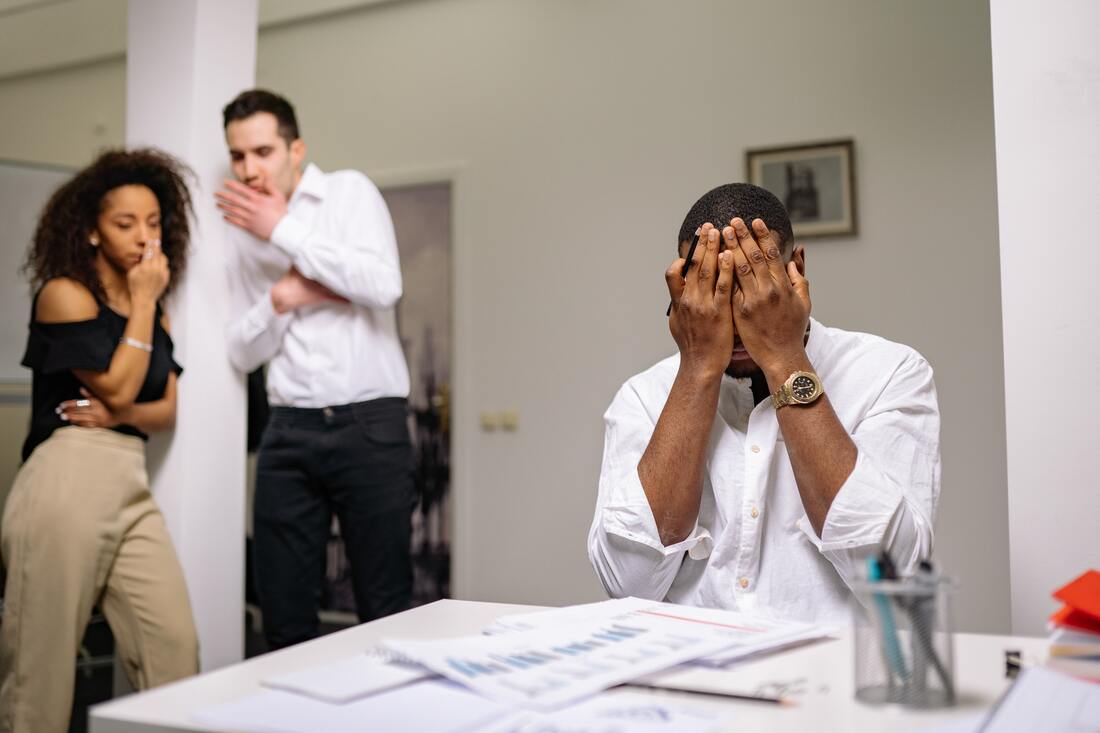



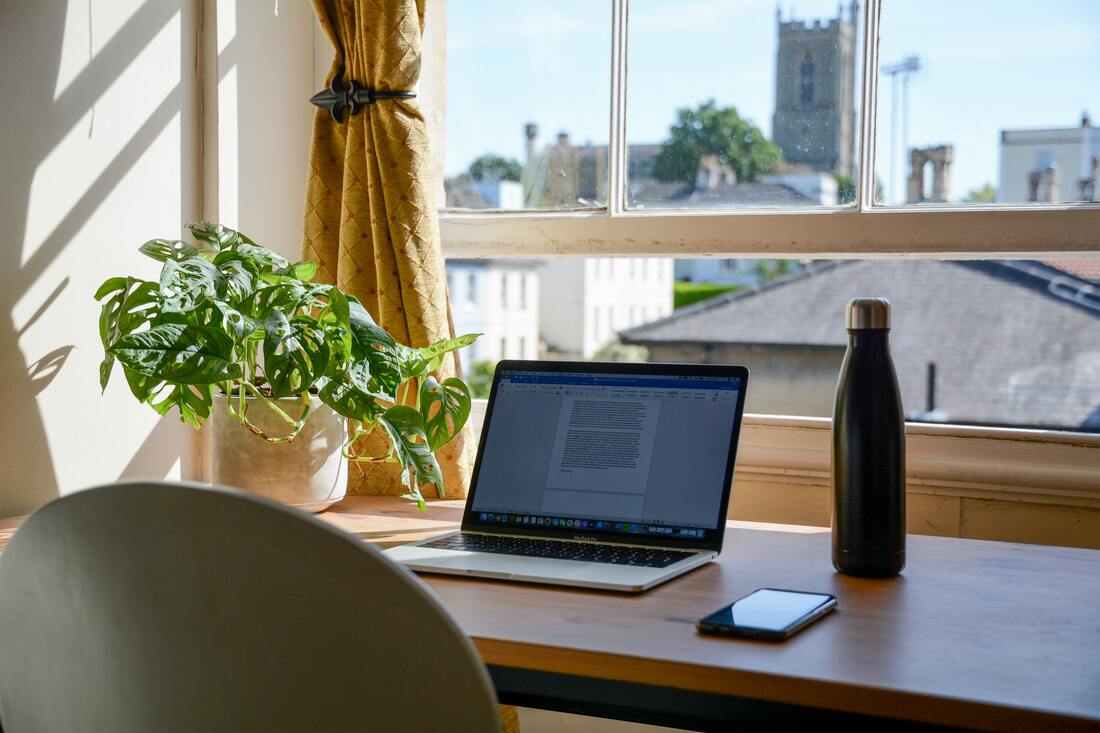





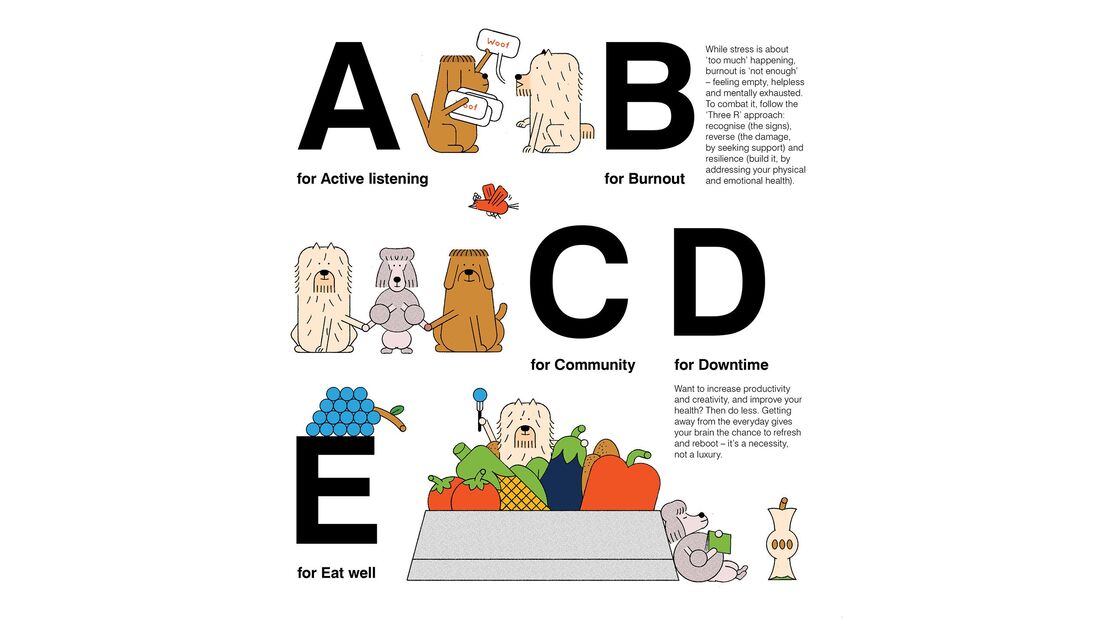

 RSS Feed
RSS Feed